When i am trying to restrict nill value in coredata i am getting error like
Implicit declaration of function 'IS_NOT_NIL_OR_NULL' is invalid in C99
Here is my code:
if ([[context executeFetchRequest:fetchRequest error:NULL] count] == 0) {
// Create a new managed object
NSManagedObject *newDevice = [NSEntityDescription insertNewObjectForEntityForName:@"demo" inManagedObjectContext:context];
if (IS_NOT_NIL_OR_NULL(self.Name))
{
[newDevice setValue:self.Name forKey:@"nameofentry"];
} else
{
// Handle else case . get self.name value is null here .
}
if (IS_NOT_NIL_OR_NULL(self.WebsiteName))
{
[newDevice setValue:self.WebsiteName forKey:@"sitename"];
} else
{
// Handle else case . get self.WebsiteName value is null here .
}
if (IS_NOT_NIL_OR_NULL(self.Feedlink))
{
[newDevice setValue:self.Feedlink forKey:@"urloffeed"];
} else
{
// Handle else case . get self.Feedlink value is null here .
}
NSError *error = nil;
// Save the object to persistent store
if (![context save:&error]) {
NSLog(@"Can't Save! %@ %@", error, [error localizedDescription]);
}
}
EDIT:

